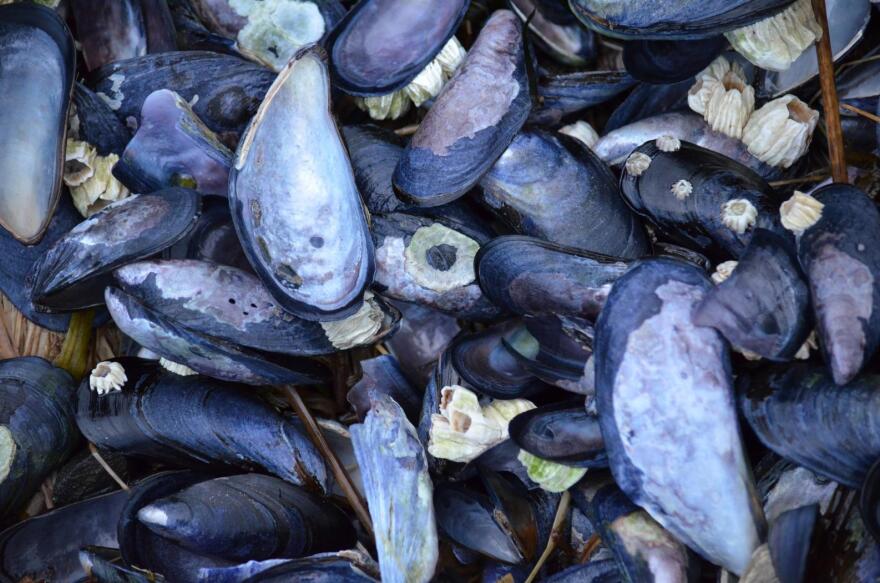A person has died from paralytic shellfish poisoning after eating blue mussels and snails in the Aleutian Island community of Unalaska, state health officials confirmed Wednesday.
The person had underlying health conditions that contributed to the death, but the state medical examiner’s office confirmed that the primary cause was exposure to the toxins from seafood, according to a statement from the Alaska health department.
This is the first known PSP fatality in Alaska since 2010, although serious illnesses are reported more frequently, the state said.
The person who died ate the mussels and snails collected from an Unalaska beach July 4. The shellfish were cooked, and the person developed symptoms some four hours after eating.
The patient’s initial symptoms included tingling fingers, numbness, a floating sensation and vomiting, the state said. Several hours later, the patient reported numbness in their mouth, weakness in their hands and pain in their neck and back.
The patient was transferred to Unalaska’s clinic, then flown to an Anchorage hospital where they died.
Blue mussel samples collected from the beach the same day were found to have extremely high toxin levels -- more than 100 times higher than the safe limit, the state said.
The snail samples also had elevated toxin levels, but not as high as the mussels.
High levels of toxins that can cause PSP have been found recently in shellfish from numerous Alaska communities.
Recent reports have found dangerous PSP levels in butter clams or blue mussels from beaches in Craig, Chignik Lagoon, Hydaburg, Ketchikan, Kodiak, Kasaan, Juneau, Metlakatla, and Unalaska, among others, the state said.
State warnings apply only to non-commercially harvested shellfish, since commercial operations are required to regularly test for toxins.

